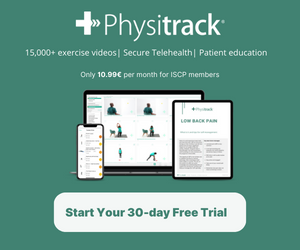No matter what your age or level of ability, regular movement benefits your physical, social and emotional wellbeing. No one size fits all and it is important to find activities that suit your health needs, level of ability and confidence, are enjoyable and can be done easily and often at home. Safety is important. There is a risk of injury if you move too fast, don’t have adequate support during balance activities or try keep up with people much fitter and stronger than you.
With so many movements/exercises to choose from, It is helpful to focus on movements you don’t always find easy, and get into the habit of doing them ‘little and often’ during your day. For example;
- Boost circulation: If you feel sluggish, low in energy or have been sitting for a long time, movements that boost your circulation, increase your heart rate and get blood flowing to your brain are beneficial. A light marching action with your legs and arms in sitting or standing for 1-2 minutes is a great start.
- Improve flexibility: If your joints and muscles feel stiff or restricted, slow stretches as far as is comfortable while keeping a good posture will help you reach, turn and bend easier. ‘Motion is lotion’ and our joints need regular movement for nourishment and to stay in good shape.
- Improve strength: If you use your hands to get up off the sofa, get up from kneeling or go upstairs, then exercises to strengthen your legs especially ankles, knees and hips are helpful. These include heel lifts, toe raises and knee bends which can easily be added to regular daily activities until they become a habit.
- Improve stability: If you feel a bit unsteady on your feet, then regular balance activities can improve stability and keep your reactions sharp in case you trip. Always have solid supports around you like a table, kitchen counter or wall for safety. Start with small balance activities and only progress to more ‘wobbly’ activities like stepping in different directions if you aren’t relying on your hands for support and can easily take a wide ‘recovery’ step when you wobble. If you have good leg strength and want to combine movement challenges with brain games, you might like the ‘Clock Yourself’ App designed by a physiotherapist to help you think and react quickly on your feet.
Remember:
- Work at a pace that suits your fitness level. Not everyone finds movement easy, so build on what you are currently doing and from a level that is comfortable for you.
- Be aware of your breathing and try keep your breaths slow, deep and controlled.
- Sit less and move more. Try to stand up every 30 minutes and move for 2 mins.
- You are never too old to improve your movement. Every movement counts. Do a little, a little more and a little becomes a lot. Set yourself small daily or weekly targets.
- Regular exercises that challenge strength and balance can reduce your risk of a fall.
- If you are recovering from an illness you can regain lost strength with at least 2-3 sessions of strength activities a week. (1 week in bed can decrease your strength by 20%)
Other suggestions on moving more while at home:
- Use the stairs several times during the day, as long as you are safe to do so alone
- Go to bathroom upstairs rather than downstairs if you are safe to do so
- Place your phone or TV remote at the far end of the room so you have to get up to use it
- Stand up to take phone calls – if you can ‘walk and talk’
Disclaimer
The content on this page is provided for general information purposes only and is not meant to replace a physiotherapy or medical consultation.



